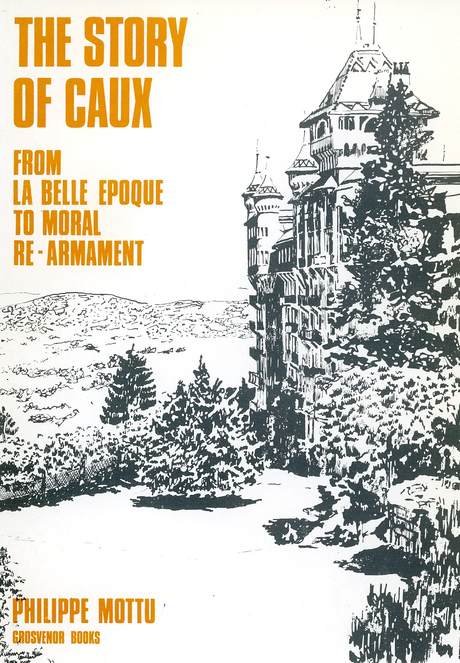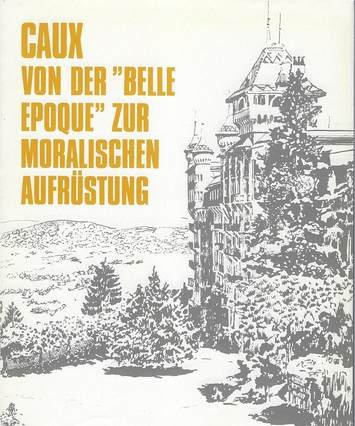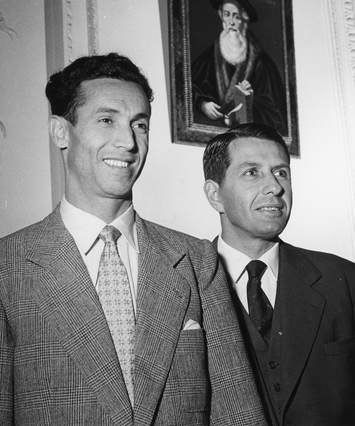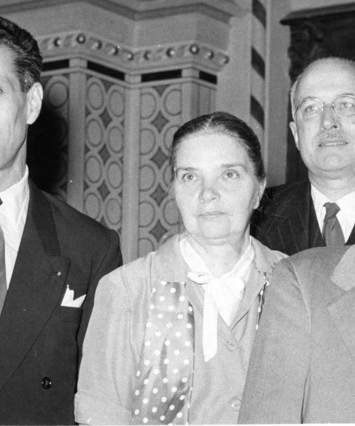Эта публикация также существует в:
Philippe Mottu writes: 'A few years ago an African journalist who had come to Caux to take part in a Moral Re-Armament conference asked me: ‘Do you know of a book that tells the story of Caux?’ Disappointed by my reply, he said, ‘You ought to write it yourself.’ From that time on I have been thinking about this book.
'I soon realised that the story of Caux did not begin in June 1946, when the old Caux Palace became a centre for Moral Re-Armament conferences, but that there was an earlier history to be discovered and brought to life. I would like to express my gratitude to the residents of Caux, Glion and Montreux who helped me in my researches. Their stories pieced together the picture of the astonishing human adventure which began with the birth of the village of Caux.
'The second part of the book proved more difficult to write for, faced with a vast number of experiences, I had to make a choice, using some examples and passing over many others. Nor was it an easy matter to try to give an impression of the personality of Frank Buchman, who has left his stamp on Caux.
'The initiative taken in 1946 by a few Swiss citizens to make Caux a world centre for Moral Re- Armament will surely take its place in history as a fresh example of the humanitarian tradition of Switzerland. My chief hope is that more and more of my fellow countrymen may realise this and engage in that decisive battle for the future of mankind, making Moral Re-Armament the basis of our national life.
'I wrote this book in memory of the work of enterprising men like Philippe Faucherre and Ami Chessex who created in Caux a place which, many years later, thanks to the circumstances of history and, I believe, to the providential action of God working through men like Frank Buchman and Peter Howard, became a centre of vital life which reaches out across the world.
'ln this book I have touched on only a few aspects of the world-wide action of Moral Re-Armament, and of the outreach of Caux. But I have tried to evoke something of the extraordinary story of this little Vaudois village, born during la belle époque, whose name has today become a synonym of hope for millions of people of all races and all countries.
'The immense changes which have taken place in the world between those days in the late nineteenth century and our own are likely to be surpassed by even more spectacular changes before the end of the present century.
'It is in this context that I see a great future for Caux, for I believe we are going to see a reversal of values which will enable man to find his true moral and spiritual stature. ln the midst of these changes, one factor remains constant: the relationship between man and God, the choice between whether we bow the knee to the tyranny of almighty man, or accept the sovereignty of Almighty God. The task is immense. ln our days any strategy which is confined to a single country, a single race, a single class, or even a single generation is too narrow to provide an answer to the challenge of the modern world.
'At Caux, men of every race, class, creed and colour meet to face this challenge together. Caux is ready and available for all those who care about the future of mankind and want to fight to remake the world.'
This book can be ordered from cauxbooks@caux.ch
English





